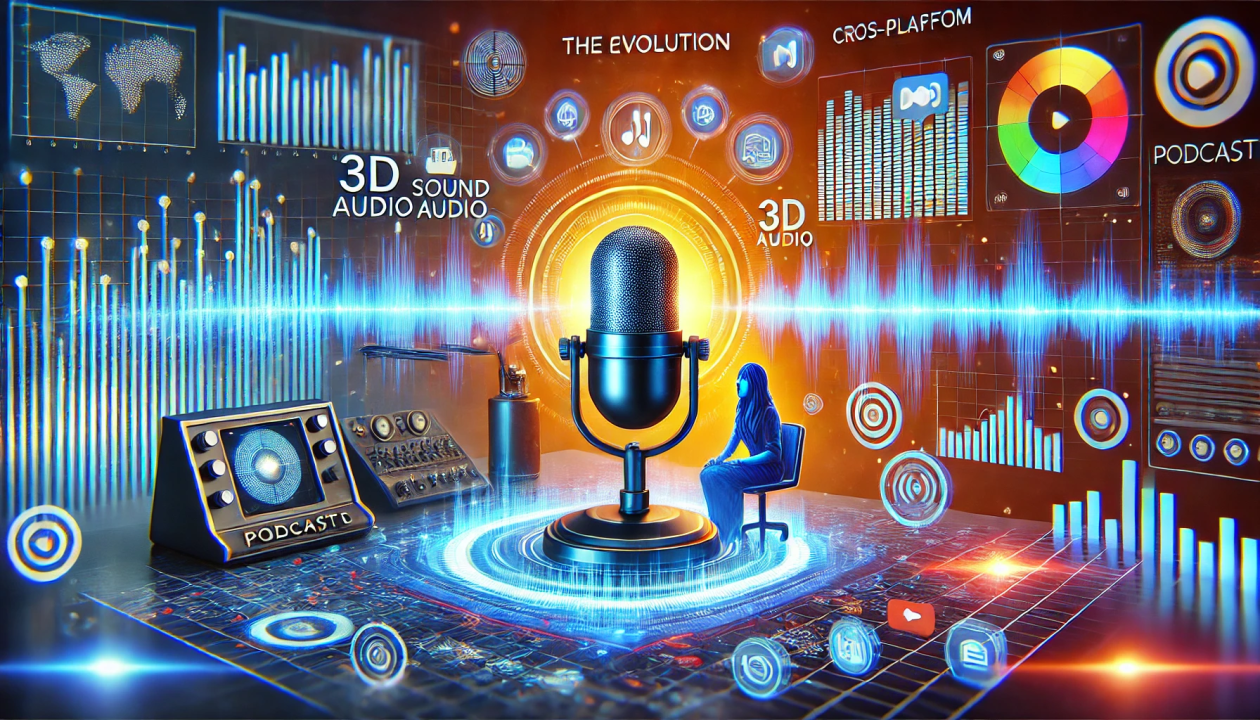Podcasts have rapidly evolved from a niche medium into a powerful force reshaping multiple industries. With millions of listeners worldwide, they influence consumer behavior, marketing strategies, and even business models. This article explores how podcasts disrupt various sectors, their economic impact, and what the future holds for this booming platform.
The Rise of Podcasting
Podcasting began in the early 2000s but gained mainstream traction with the success of shows like Serial and The Joe Rogan Experience. Today, over 460 million people listen to podcasts globally, with projections suggesting continued growth. The accessibility of on-demand audio content, combined with the rise of smartphones and streaming platforms, has fueled this expansion.
Why Podcasts Are Disruptive
Podcasts challenge traditional media and business models by offering:
-
On-demand consumption – Listeners choose what, when, and where to listen.
-
Niche targeting – Unlike broad radio shows, podcasts cater to specific interests.
-
Low production costs – Anyone with a microphone and internet can start a podcast.
-
High engagement – Listeners form strong connections with hosts, leading to loyal audiences.
Industries Disrupted by Podcasts

A. Media and Entertainment
Traditional radio and TV face stiff competition as podcasts provide alternative content. Key impacts include:
-
Declining radio audiences – Younger generations prefer podcasts over scheduled broadcasts.
-
New storytelling formats – Podcasts allow deep dives into topics, unlike time-constrained TV segments.
-
Independent creators thriving – Platforms like Patreon enable podcasters to monetize without corporate backing.
B. Marketing and Advertising
Podcasts offer a unique ad space where host-read ads feel more personal than traditional commercials.
-
Higher conversion rates – Listeners trust podcast hosts, making ads more effective.
-
Dynamic ad insertion – Advertisers can update messages in real-time based on listener data.
-
Influencer marketing shift – Brands collaborate with podcasters for authentic promotions.
C. Education and E-Learning
Podcasts supplement traditional learning with accessible, free, or low-cost content.
-
Corporate training – Companies use internal podcasts for employee development.
-
Language learning – Podcasts like Coffee Break Spanish help users learn at their own pace.
-
Academic accessibility – Universities release lectures via podcasts for remote students.
D. Healthcare and Wellness
Medical professionals and wellness experts use podcasts to share knowledge.
-
Mental health awareness – Shows like The Happiness Lab provide therapy-like discussions.
-
Patient education – Doctors explain complex conditions in digestible episodes.
-
Fitness coaching – Trainers guide workouts through audio, eliminating video dependency.
E. Business and Entrepreneurship
Podcasts serve as a knowledge hub for professionals and startups.
-
Networking opportunities – Industry leaders share insights, helping listeners grow.
-
Crowdfunding and brand-building – Entrepreneurs use podcasts to attract investors.
-
Remote work culture – Business podcasts discuss trends in the digital workspace.
The Economic Impact of Podcasting
The podcast industry is projected to surpass $4 billion in revenue by 2024, driven by:
-
Subscription models – Platforms like Spotify and Apple Podcasts offer premium content.
-
Live podcast events – Fans pay for tickets to live recordings and meetups.
-
Merchandising – Popular shows sell branded products to their audience.
Future Trends in Podcasting

-
AI-Generated Podcasts – Artificial intelligence may soon produce automated, personalized episodes.
-
Interactive Podcasts – Listeners could influence content in real-time through polls or Q&A.
-
More Video Integration – Platforms like YouTube push video podcasts for higher engagement.
-
Localization – Podcasts in regional languages will expand global reach.
Conclusion
Podcasts are no longer just entertainment—they are transforming industries by offering personalized, engaging, and cost-effective content. As technology advances, their influence will only grow, making them a crucial tool for businesses, educators, and creators.







